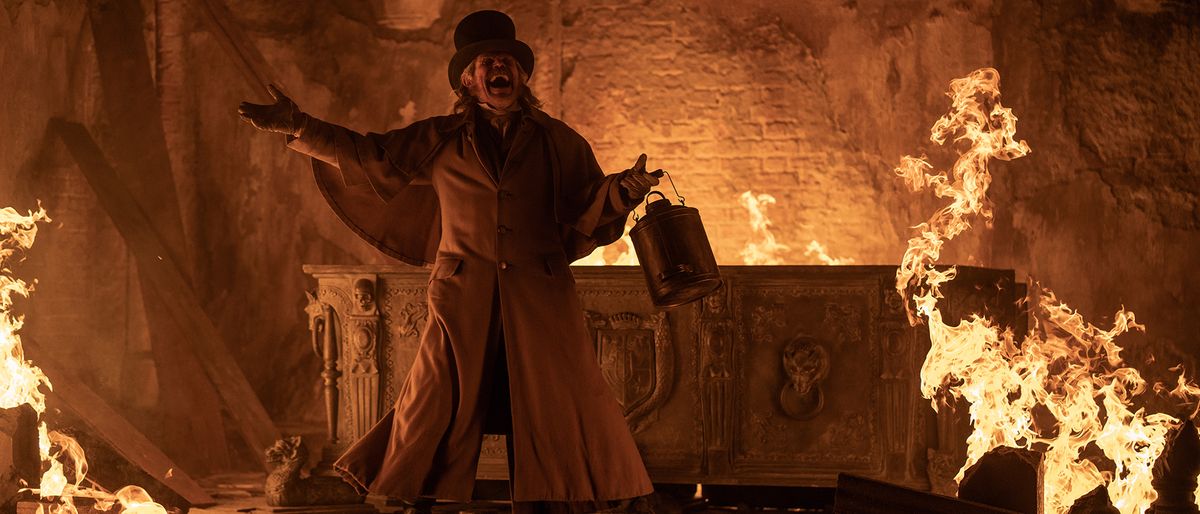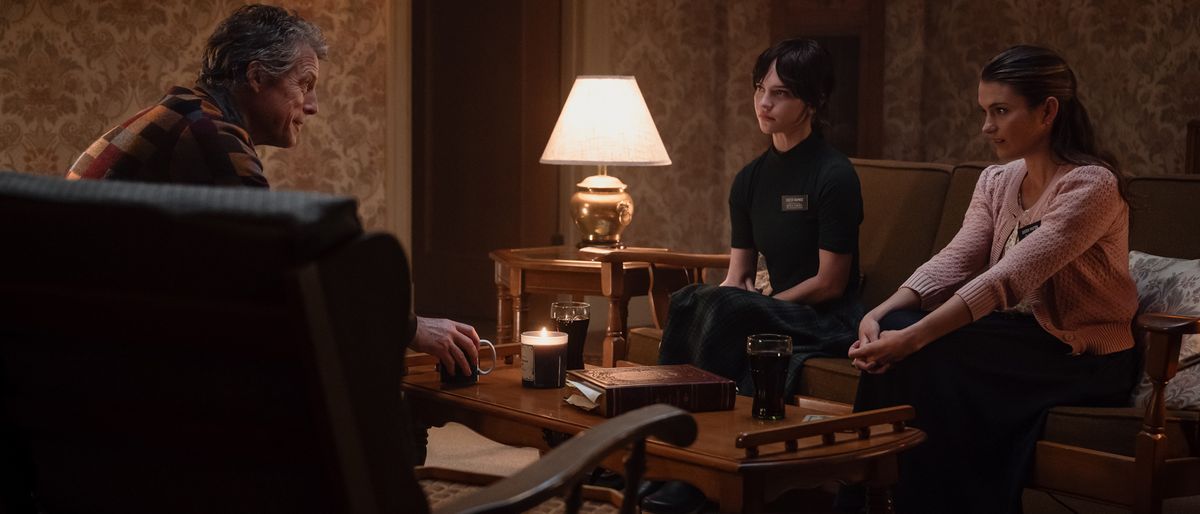
Detroit, Kathryn Bigelow’s daring, brutal, blood-drenched drama in regards to the atrocious occasions that unfolded on the Algiers Motel in the course of the metropolis’s lethal race riots in July 1967, performs out like essentially the most scary type of home-invasion horror movie. That’s as a result of the occasions depicted are actual and, as staged by Bigelow, really feel like they’re occurring within the current proper earlier than our eyes reasonably than 50 years in the past. This isn’t a feel-good docudrama with an uplifting, therapeutic message: It’s meant to impress outrage and remind viewers of more moderen protests relating to police remedy of African-Americans, and on that degree it’s an unqualified success.
Detroit opens with the infamous 12th Street Riot—a five-day revolt that resulted in 43 deaths and greater than a thousand accidents—which began when police raided a “blind pig” (an unlicensed after-hours nightclub) and threatened the black patrons who had been there to honor a returning Vietnam veteran. As the largely white cops shove individuals into vans and haul them off to jail, a defiant crowd gathers outdoors, and it isn’t lengthy earlier than violence erupts. Rocks are hurled by way of retailer home windows. Looting turns into rampant. Buildings are set ablaze. Soon, the National Guard are referred to as in to assist restore order.
Downtown, Martha and the Vandellas sing “Nowhere to Run” on the Fox Theater to an appreciative crowd, whereas a promising new group referred to as the Dramatics anxiously wait within the wings for what they hope will likely be their large break. Unfortunately, simply as they’re about to take the stage, the live performance is abruptly cancelled by regulation enforcement and everyone seems to be ordered out of the theater. The members of the Dramatics break up up, and lead singer Larry Reed (a heartbreaking Algee Smith) and good friend Fred Temple (Jacob Latimore) get a room in an annex adjoining the Algiers Motel, a black-owned institution routinely raided for prostitution, to allow them to keep away from the road violence. Stupidly, a 17-year-old black child (Jason Mitchell) shoots a starter pistol from a window, which leads a close-by National Guard unit to consider there’s a sniper within the constructing. They return hearth, and an area police unit swarm in to move up the probe and find the shooter.
What follows is likely one of the most unsettling, traumatic, and tragic scenes to be present in any film this century. Three white, malevolent cops—led by a baby-faced officer named Krauss (Will Poulter), who’s already below investigation for gunning down a black looter—line everybody within the annex up towards a wall and demand they flip the shooter and the weapon over to them. They are additional incensed after they uncover two white women there, assuming they’re prostitutes who’re turning tips with black males. This sequence, which incorporates savage beatings, taunting racial slurs, loss of life threats, a demented homicide recreation through which the cops fake to kill suspects who received’t speak, and far, a lot worse, goes on for about 40 excruciating minutes and is the centerpiece of Bigelow’s image. It’s a bravura piece of filmmaking, intensely and expertly staged, and performed out in actual time. All of the actors concerned on this harrowing scene are glorious, together with John Boyega as a good-natured safety guard who tries to quell the violence, however Poulter is the standout. His riveting efficiency is so convincingly sadistic that theatergoers will seemingly neglect they’re watching a film.
Mark Boal, who additionally penned Bigelow’s Zero Dark Thirty and The Hurt Locker, wrote the blistering script based mostly on private interviews with a number of the eyewitnesses on the Algiers that fateful evening. Although set a half-century in the past, Detroit feels extraordinarily up to date: The filmmakers clearly need audiences to think about occasions in Ferguson (Michael Brown), Baltimore (Freddie Gray), New York (Eric Garner), and Saint Paul (Philando Castile) after they see Detroit—and so they undoubtedly will, particularly in the course of the film’s concluding courtroom scenes through which the victims are denied justice.
Whatever one thinks of Detroit—a courageous examination of a long-forgotten injustice or a lurid portrayal of an unpleasant incident greatest left previously—it’s assured to stir sturdy feelings and is a robust cinematic expertise not simply shaken.
Source


